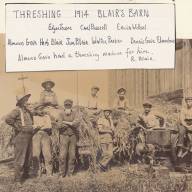Since when is it appropriate to ask people something as private and personal as who they plan to vote for in the upcoming primary and then November general election?
This primary season, this writer has been plagued by a host of unwanted and unsolicited text messages from nonprofits, lobbyists and advocacy groups wanting to know whether I’d be casting my ballot for a specific candidate or voting yes on the reproductive choice ballot item.
These unwanted texts are intrusive and come from well-meaning volunteers with the campaigns of those seeking federal office and from those seeking to shore up reproductive liberty in Vermont. It’s not the texters who are the issue here. It’s the fact that my cellphone has landed on a list which ensures I’m pestered and asked deeply personal questions by strangers.
Sure, it’s 2022 when everyone is wearing their hearts on their sleeves and their opinions on Tik Tok and the 24/7 news cycles thrives on getting people to divulge opinions and secrets.
This week, at 6:23 p.m. while making dinner, a text came in that read:
Hi Lisa, this is ________ with Working Families Party volunteering for ______ _________ for Congress. Both WFP and Bernie Sanders have endorsed _________ because she fights for people over profits. As leader of the Senate, she passed the strongest reproductive rights law in the nation, secured major wins for Labor, made the biggest investment in affordable housing in a generation. Can we count on your vote for _______ __________ on August 9?
After responding with a request to be removed from that organization’s contact list, a second text came in that read:
You have now been opted out of texts from our organization. Your number remains on the public voter registration list available to all campaigns.
My cellphone number does not show up on my town’s list of registered voters, nor does it show up on the Vermont Secretary of State’s list of registered voters. Trying to call the Working Families Party yielded no humans. Something is fishy here.
Beyond that, candidates running for political office need to be aware that there’s a fine line between harassing people by asking them about how they plan to vote and trying to demonstrate that a candidate is worthy by having volunteers advocate for them.
Voting is private.












